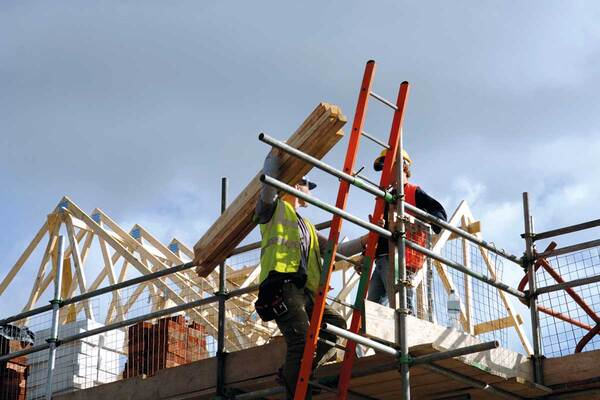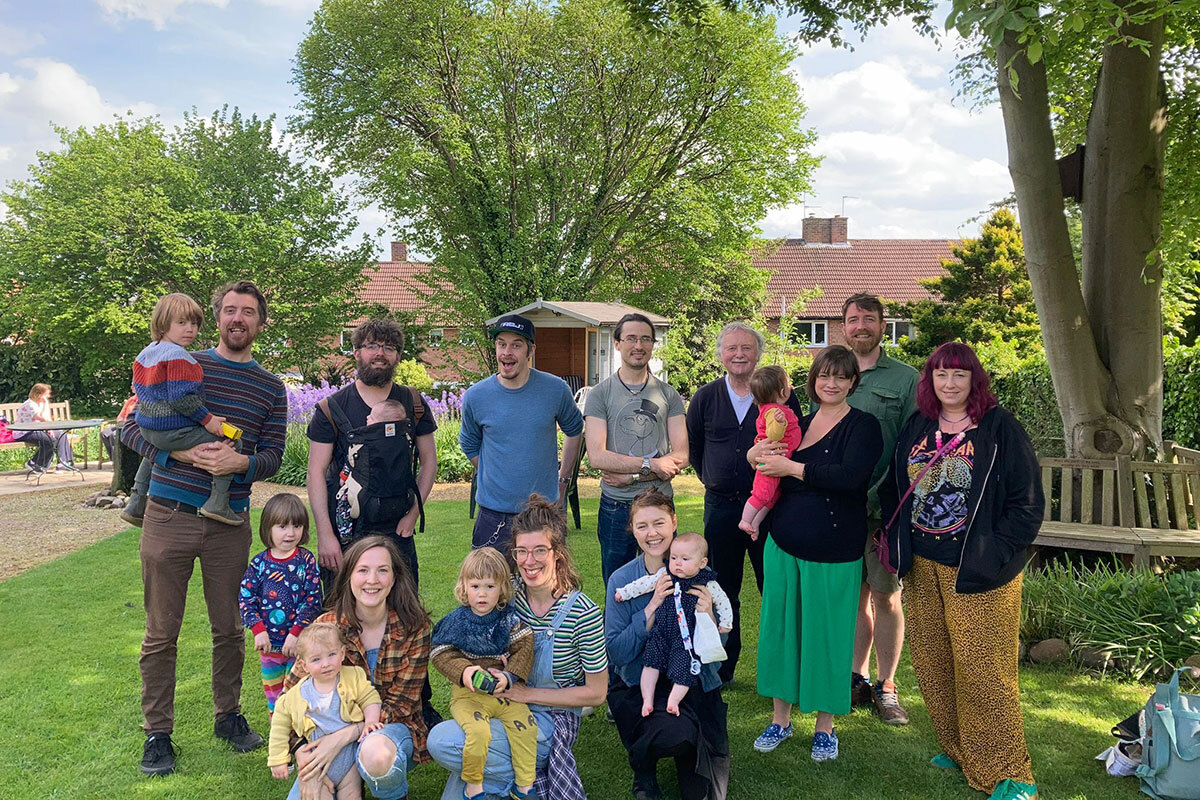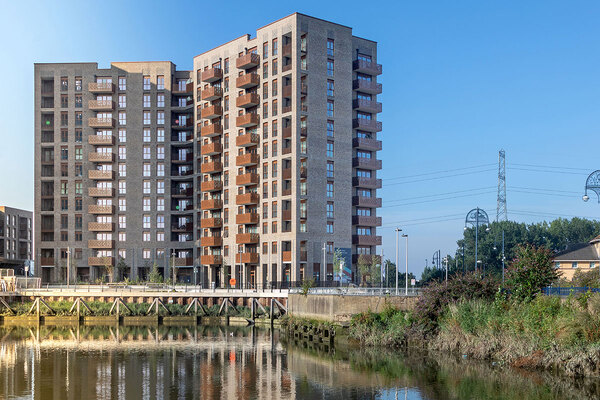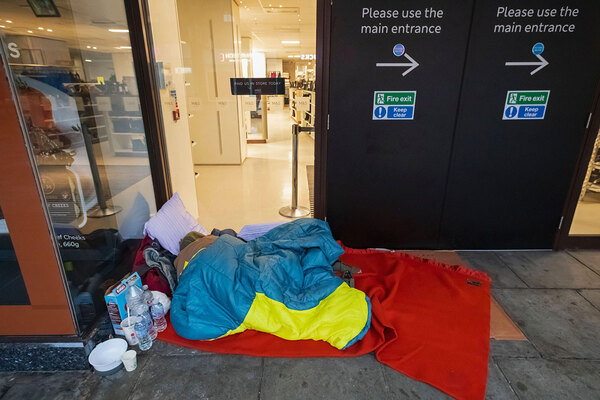You are viewing 1 of your 1 free articles
Future of thousands of community-led homes uncertain as government fails to renew fund
Ministers have been warned that they are “killing off a pipeline” of thousands of affordable homes by failing to renew a fund that supports the delivery of community-led housing projects.
Individuals involved in the community-led housing sector have told Inside Housing that projects across the country have been left in limbo after ministers made the decision not to allocate any additional funding to the Community Housing Fund.
The Community Housing Fund was first announced under David Cameron’s government in 2016 and was initially expected to be worth £60m annually for five years.
But there have only been three iterations of the fund since then. This included £60m that was allocated to local authorities in 2016-17, followed by £163m allocated directly to projects between 2018 and 2020.
This 2018-2020 fund included a mixture of revenue funding to help with the development of projects and capital funding to pay for build costs and infrastructure.
The government failed to fully renew the fund in 2020 and has since announced just £4m worth of revenue funding, which was open for bidding between August and December last year.
Now members of the community housing sector have been notified that ministers have taken the decision not to allocate any additional funding to the Community Housing Fund.
Tom Chance, chief executive of the National Community Land Trust Network, said it is “incredibly disappointing that the government has failed to find a relatively small sum to bring forward these homes”.
Research carried out by the Community Led Homes partnership last year estimated there were around 650 active community-led housing projects planning roughly 11,818 homes across England.
An estimated 82% of these homes were for government-recognised affordable housing tenures, including 6,569 affordable rent homes, 2,274 social rent homes and 893 shared ownership homes.
Community-led housing projects can access various funding sources to develop homes, including private finance and the Affordable Homes Programme (AHP) when a development gets to the build stage.
However, many community-led projects are reliant on the Community Housing Fund, particularly when it comes to funding pre-construction work or developing homes for affordable housing tenures not covered by the AHP.
Tom Warder, community-led housing manager at the Sussex Community Housing Hub, which is currently supporting around 25 housing projects, said many are “incredibly frustrated by the current funding landscape”.
One of the projects Mr Warder’s team is supporting is Angmering Community Land Trust (CLT), which is in the process of developing 12 affordable homes in Sussex (see below).
The scheme has been hit with unexpected costs at the build stage and members of the CLT are unsure whether the development will remain viable without further government support, particularly in a context of rising build costs and interest rates.
Community-led housing projects in limbo
‘We need funding and we need it fast’
James Neward is a director at YorSpace, a York-based CLT that he started with his best friend Sue in 2014, which is aiming to deliver a 19-home, low-carbon co-housing community.
The project pilots a new model of housing tenure, named mutual homeownership, under which residents pay a deposit and make monthly payments under the terms of a long-lease. By making payments they accrue collective ownership of a co-operative society.
“We set YorSpace up in order to take control of our own housing situation while helping others find a way into a home in a city that is becoming increasingly difficult for people on low incomes to settle in,” Mr Neward said, adding that the approach allows them to “pool our resources so we share the risk and the reward of a self build together”.
YorSpace began working with City of York Council on the project in 2016. In March 2019, it gained planning permission for 19 homes on land that was sold to them at a discount by the council.
The project was due to start on site in the summer of 2020, however the business plan was reliant on £855,000 worth of capital grant from the Community Housing Fund and no capital funding has been available through the fund since March 2020. YorSpace cannot access money from the AHP because mutual homeownership is not currently recognised by the government as an affordable housing tenure.
The project is now trying to proceed without capital grant funding, however six residents have now left the scheme and projected build costs have risen 98% since the organisation finalised the design that was submitted for planning.
Mr Neward, who hopes to live in the finished development with his family, said YorSpace has “poured our heart and soul into getting this off the ground for over 8 years”.
He added that it has been “heartbreaking to watch friends leave the project since the pandemic began as funding has dried up and costs have spiralled”.
“The cost of living crisis is worrying for me and my partner as we're renting in a poorly insulated, gas-fired home and have a landlord who raises the rent every year… so we need funding and we need it fast,” he stated.
‘It could all fall apart’
Robin McDonald is the treasurer of Sussex-based Angmering CLT, which is aiming to build 12 homes for affordable rent and shared ownership on land sold to it for £1 by the local parish council.
After going through the planning process, the CLT got a contractor on board last year. It received some funding from the Community Housing Fund to help it get to that point.
However, since appointing a contractor, the project has been hit with unexpected costs, including site contamination issues and problems with the site’s electricity supply.
These issues have delayed the project, during which time build costs have been rising. Mr McDonald said costs have risen from roughly £2,400 per sqm to £3,000 per sqm – costing the project roughly £500,000. Rising interest rates have also posed a major problem, with Mr McDonald explaining that each 0.25% rate rise “hits us badly”.
He said the winding up of the Community Housing Fund means “there’s not chance of us getting any more additional funds that would enable us to offer shared ownership at levels that people can actually afford”.
The CLT has already had to increase the number of shared ownership homes on the scheme at the expense of affordable rent due to viability issues.
Mr McDonald spoke to Inside Housing ahead of a meeting with the project’s contractor to discuss engineering out costs.
“We’re not in a very happy place at the moment,” he stated.
“If this meeting today turns out that we can engineer costs out of this scheme we may have a viable scheme, but right now it looks very very doubtful, which is a shame because there has been eight or nine people for the past three or four years working very hard to make it happen and it could all fall apart.”
Community Led Homes estimated that the roughly 650 active community-led housing projects in England will need £45m of pre-development revenue funding and £2.5bn of capital to complete these homes
While most of this will come from private finance, it said government funding is needed to unlock this private investment.
The partnership has been calling on ministers to renew the Community Housing Fund with £45m revenue funding and £7.5m of capital grant for tenures not covered by the AHP, as well as £8m revenue to support the enabler hubs.
Following news that the fund would not be renewed, Mr Chance said his organisation is “continuing discussions about how else the government can support the sector”.
However, he warned that ministers “risk killing off the pipeline” that was stimulated by the launch of the Community Housing Fund in 2017 before these projects have a chance to get to the build phase.
“Successive housing ministers have publicly stated that community-led housing ticks all their boxes: levelling up, high-quality design, democratic engagement in planning and more. In recent years we have significantly developed the expertise and capacity to support community-led projects and developed effective partnerships with housing associations and private developers. They’re pulling the plug on a real success story,” Mr Chance added.
A Department for Levelling Up, Housing and Communities spokesperson said: “Our levelling-up agenda sets out plans to work with partners in local government to explore the community infrastructure and local empowerment that helps neighbourhoods to thrive.
“Last year, £4m was invested through the Community Housing Fund on a total of 52 projects. We remain firmly committed to supporting community-led housing through our Levelling Up Fund, investing £11.5bn in affordable housing and £1.8bn for the regeneration of brownfield land.”
Sign up for our daily newsletter
Already have an account? Click here to manage your newsletters













